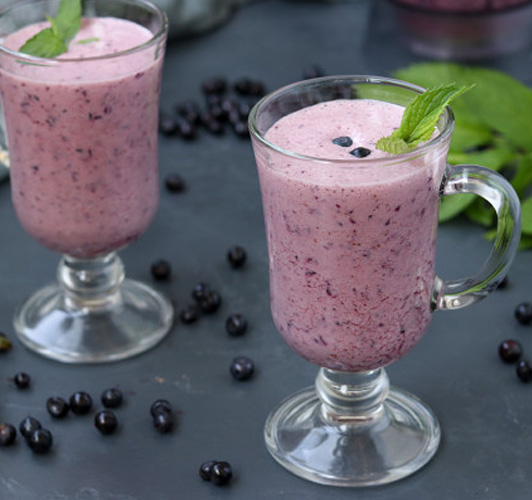Benefits of Blueberry Juice
Blueberry juice is made from blueberries, sometimes blended with other juices such as apple or cranberry. Blueberries are a nutritious food low in calories, and blueberry juice made only from blueberries contains many of the same nutritional benefits of raw blueberries. Pure blueberry juice can be purchased in some groceries and health-food stores, or you can prepare it on your own.
Nutritional Profile for Raw Blueberries
According to the U.S. Department of Agriculture, 1-cup of raw blueberries contains 84 calories, and less than 1 gram of fat. One serving also contains 3.6 grams of dietary fiber and a little over 21 grams of carbohydrates. Blueberries are a good source of vitamin C, vitamin K, vitamin A, manganese and potassium.
Vitamin C
Blueberry juice is high in vitamin C, an essential nutrient for overall health. Vitamin C aids in the production and repair of your body’s tissues, and it also helps to make collagen, a protein essential for healthy skin, cartilage, tendons ligaments and blood vessels. This vitamin also helps maintain bone and teeth health, and assists with wound healing.
Blueberry Lassi

Antioxidants
Blueberries and pure blueberry juice are sometimes advertised as an antioxidant food, because of their high levels of polyphenols — in particular, anthocyanins, the phytochemical that gives blueberries their color. The high levels of vitamins A, C and E also contribute to blueberry juice’s reputation as an antioxidant.
Fiber
Blueberry juice is usually served or sold without any of the pulp from the fruit. This means that blueberry juice, unlike raw blueberries, contains very little dietary fiber, which is a significant part of the health benefit of whole blueberries. Dietary fiber is made up of the part of the plant that your body is unable to digest.
